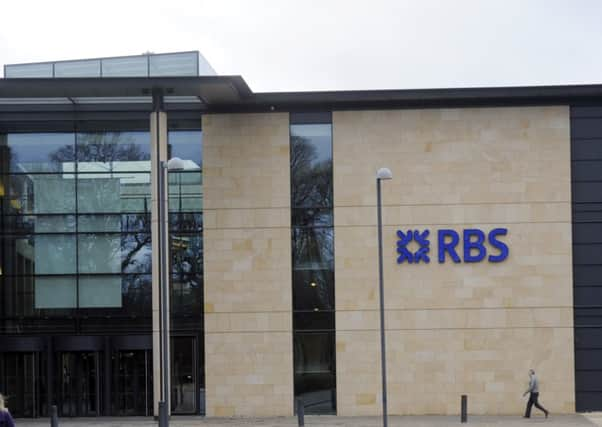Comment: Banking bonuses still vexed issue


Royal Bank of Scotland shares rose on the announcement that UK Financial Investments, the body which manages the Treasury’s 81 per cent stake in the bank, had vetoed board plans to allow executive bonuses to be set at twice annual salary.
Cue complaints from the RBS management that this political imposition will lead to an exodus of key personnel. Don’t worry. It’s not going tohappen.
Advertisement
Hide AdAdvertisement
Hide AdAs we know, there are new EU rules that block bankers’ bonuses exceeding the equivalent of annual salary, or twice that if shareholders approve. This is aimed at curbing the excessive risk-taking that resulted in the 2008 financial crisis.
However, the idea that these velvet handcuffs will restrain undue risk-taking during a bubble is risible. Besides, there are umpteen ways to evade the cap (RBS please note).
For starters, each European bank has to formally identify the “risk-takers” to whom the bonus cap will apply. Ergo, the easy way round the cap is by deliberately not defining managers in key positions as “material risk-takers”.
According to Bafin, the German regulator, of the 87 staff in Germany’s banks who earned bonuses of more than €1 million (£820,000) in 2012, a mere 40 were officially identified as such risk-takers.
Bafin’s chief executive, Raimund Röseler, remarked wryly: “It is incomprehensible how someone can earn a million euros and not have an influence on the risk position of a bank.”
RBS has designated 342 people who manage risk for the bank. I predict it will become an annual media sport to rank how this number changes in RBS, and other banks.
Another entirely legal way round the rules is to pay fixed “allowances” on top of salary and bonuses. It appears that the allowances for which designated risk-takers at RBS areeligible will be among the highest in the UK.
I believe in market incentives. I just don’t accept that the current bonus regime for traders in the investment arms of the big banks reflects either genuine scarcity or productivity value.
Advertisement
Hide AdAdvertisement
Hide AdAccording to McKinsey, the management consultancy firm, European bankers’ incomes (including bonuses) have not dropped in line with bank earnings and profits, since the crisis of 2008. In fact, earnings have gone up. More than 3,500 bankers in Europe earned €1m or more in 2012 – a big rise.
Lesson: earnings caps can always be evaded. If you seriously want to curb bank bonuses, it might be better to tax excess earnings. That way the government will also avoid seeming to penalise one bank (ie: RBS) compared with another (ie: Lloyds).
As it is, the Treasury and UKFI are signalling they will let Lloyds – still a quarter state-owned – pay bonuses at 200 per cent of salary. Does that really mean the Treasury thinks traders at Lloyds are more risk averse than at RBS?
M&A Boom
ANOTHER post-recession milestone this week: corporate mergers and acquisitions this year have already topped $1 trillion (£600 billion).
Global M&A has now recovered its 2007 level, in dollar terms. Witness GE’s pursuit of France’s Alstom orcement maker Holcim’s merger with another French firm, Lafarge.
Why the interest in French industrials? There are definite signs of recovery in France but the widening gap with German performance has left French share prices at bargain levels.
But would you bet on President Hollande successfully raising French productivity?